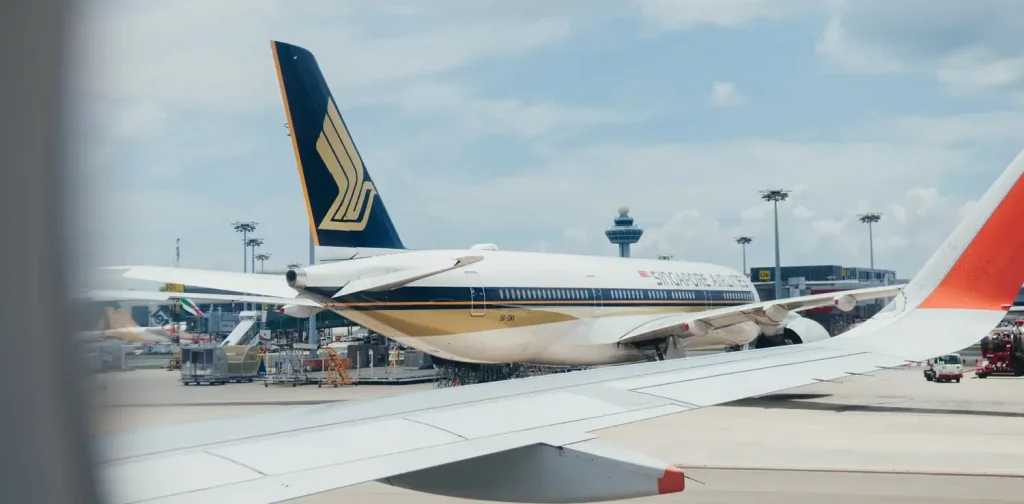Singapore and New Zealand To Collaborate on Developing Sustainable Aviation Fuel

Photo by shawnanggg on Unsplash
Traveling by plane is preferred by many. However, the aviation industry contributes to 2% of greenhouse gas emissions. Singapore and New Zealand are working together to develop sustainable aviation fuel to tackle this problem.
Climate change is now the world’s top concern. Reaching net-zero by 2050 is how we intend to ensure that the earth’s temperature does not increase above 1.5°C from pre-industrial levels. We are now at 1.1°C. The effort to reduce greenhouse gas emissions from every sector is crucial now more than ever.
The main focus of sustainable aviation fuel
The two countries’ representatives signed The Memorandum of Arrangement (MoA) on Sustainable Aviation on April 20, 2022. This is one of the first arrangements made under the New Zealand-Singapore Enhanced Partnership.
The arrangement will cover four broad areas for cooperation: policy and regulation, industry development, future infrastructure planning and provisions, and workforce transformation. The focus is mainly on developing sustainable aviation fuel, including research and development, testing and trialing, and information exchange on policy positions and regulations.
The problems of sustainable aviation fuel
Sustainable aviation fuel is seen as the most promising solution for sustainable aviation. The fuel is produced from feedstocks such as cooking oil, solid waste, and agriculture residues. However, the current production cost for sustainable fuel is almost five times more expensive than regular fuel. The biggest challenge the industry has yet to solve is how to produce sustainable aviation fuel that is widely available at a reasonable price.
Developing sustainable aviation fuel requires multi-stakeholder participation, namely from governments, airlines, and airports. Changi Airport Group CEO Mr. Lee Seow Hiang told Today that some sustainability innovations in the aviation industry are policy-driven and need consensus among stakeholders. For instance, countries need to reach a consensus on what is acceptable for feedstock and set a policy as the standard.
The future of the aviation industry
Aviation remains beneficial in our lives because of its speed compared to other transportation modes. Such an important industry needs to put extra effort into becoming sustainable transportation.
This, however, is not an easy feat. The agreement between Singapore and New Zealand means one step toward a more sustainable future. Changes and innovations must happen with the support and participation of the entire aviation industry to truly make a meaningful impact.
Editor: Nazalea Kusuma
Kresentia Madina
Madina adalah Asisten Manajer Publikasi Digital di Green Network Asia. Ia adalah lulusan Program Studi Sastra Inggris dari Universitas Indonesia. Madina memiliki 3 tahun pengalaman profesional dalam publikasi digital internasional, program, dan kemitraan GNA, khususnya dalam isu-isu sosial dan budaya.

 Test Custom Feature Image
Test Custom Feature Image  Electric Vehicles Roam the Roads of Kenya
Electric Vehicles Roam the Roads of Kenya  FedEx Engages Employees with Beach Clean-Up Initiative
FedEx Engages Employees with Beach Clean-Up Initiative  Come Back Stronger: Building Philippines’ Resilient Economy Post-COVID-19
Come Back Stronger: Building Philippines’ Resilient Economy Post-COVID-19  Inside Experian’s Sustainability Journey: An Interview with Chief Sustainability Officer Abigail Lovell
Inside Experian’s Sustainability Journey: An Interview with Chief Sustainability Officer Abigail Lovell  5 Food System Actors That Have Taken the 123 Pledge to Reduce Food Loss & Waste
5 Food System Actors That Have Taken the 123 Pledge to Reduce Food Loss & Waste  Test premium post
Test premium post